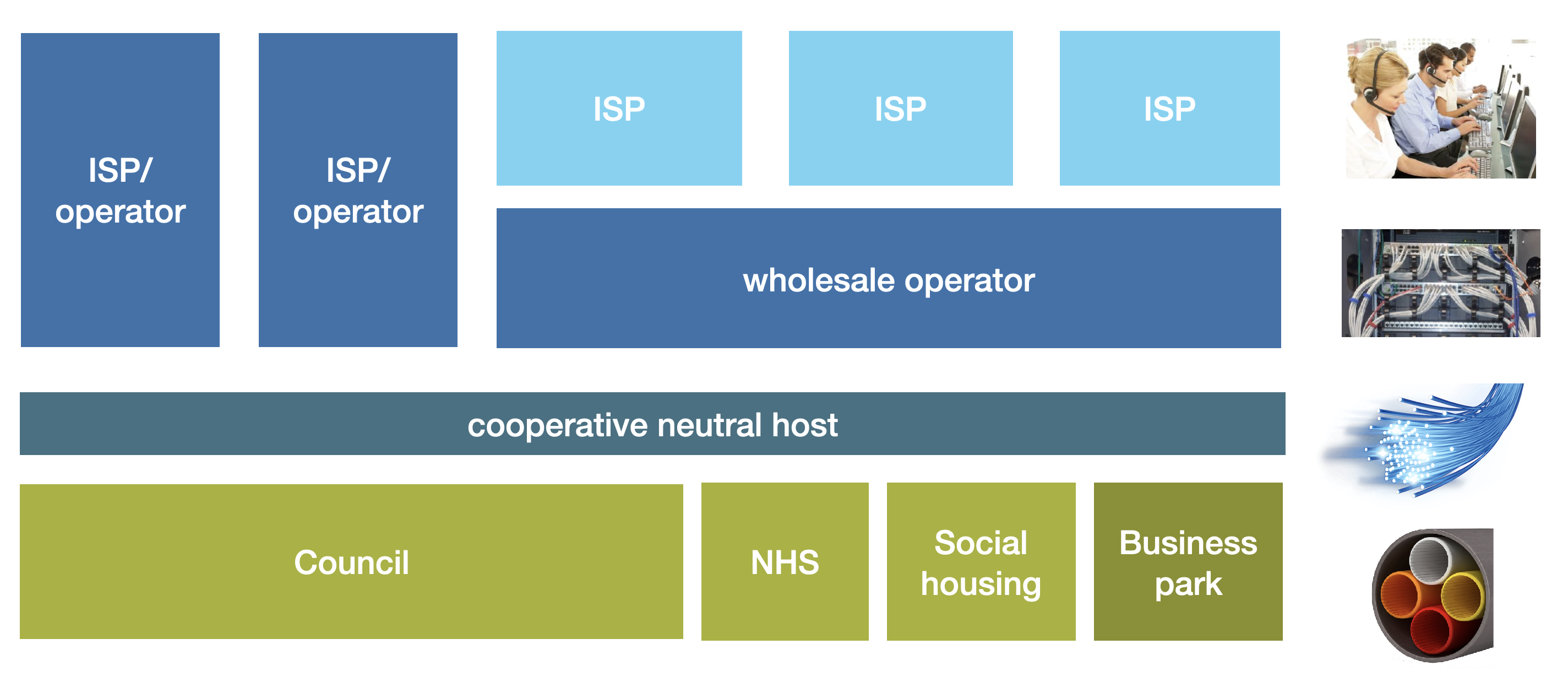Local authorities, the NHS and telecoms operators are using a cooperative model to deploy and share advanced digital infrastructure
I want to see more and more projects like CNI, that make commercial sense and offer value to communities all at once.
Business Secretary, Jonathan Reynolds on why CNI is an important model for developing digital infrastructure.
We were pleased to show Jonathan round the Tameside-CNI data centre in Ashton Old Baths last year, and explain the innovative model behind CNI.
We recorded a short video briefly afterwards which you can watch here.
How Tameside, Blackpool, Manchester, Sussex and Brighton have built advanced digital infrastructure
to transform services and serve the local economy using a co-operative model
Tameside MBC started working with partner organisations in 2016 to build a new, advanced digital infrastructure using a unique cooperative model to share access and collaborate - with benefits for public sector, businesses and citizens. Now the model has spread across the country with seven other local authorities actively involved. CNI is the vehicle for that model.
The cooperative neutral host (‘thin layer') model facilitates rapid deployment of new, full-fibre infrastructure, while avoiding some of the complications and downsides associated with other public sector demand aggregation, leveraged and co-investment models.

The thin layer model is pragmatic and ‘agile’. Now the 8 local authorities (Tameside, Blackpool, Wyre, Manchester, Mid Sussex, West Sussex, Brighton and Hove and Lancaster), work with public and private sector partners invest in new infrastructure assets where a business case can be made to meet needs. Then those assets are sewn together to form a coherent, integrated infrastructure that is shared using a co-operative. In general the business case for each investment stands alone. By linking assets together into a shared network, the business case is multiplied.
In its pioneering work Tameside MBC worked with public sector partners including Tameside Hospita, Tameside College and Jigsaw housing. Following detailed state aid (now subsidy control) advice, Tameside extended the model to include private sector partners.
In 2017 DCMS and BDUK nominated Tameside to be one of six pilot ‘Wave 1’ projects in its £200m Local Full Fibre Network Programme. Blackpool and Mid Sussex received over £5m funding in Wave 2 using the same model.
Read the full Tameside and Manchester case study here
